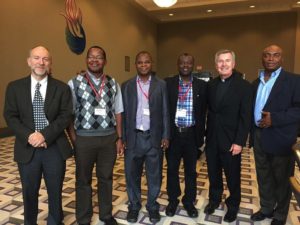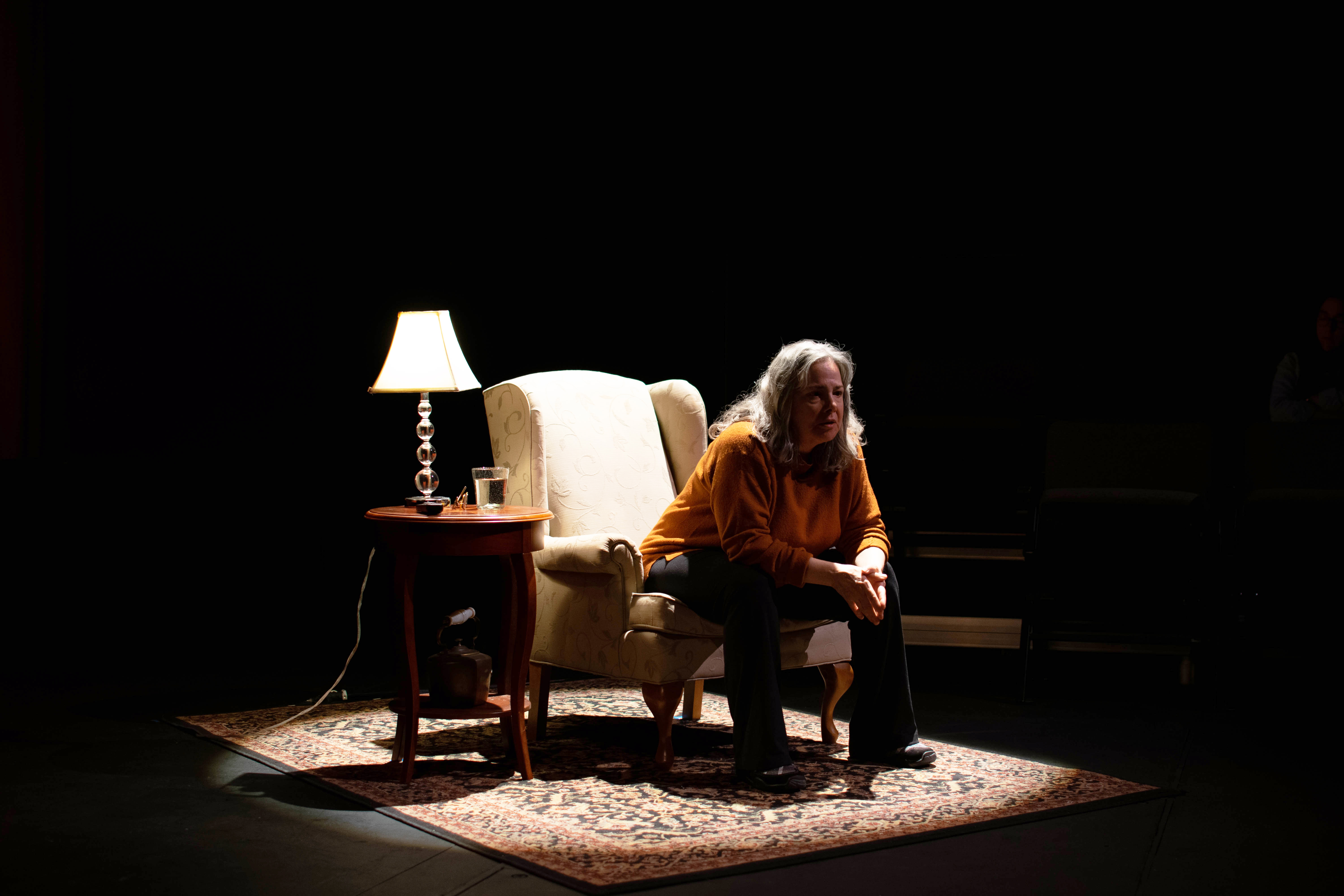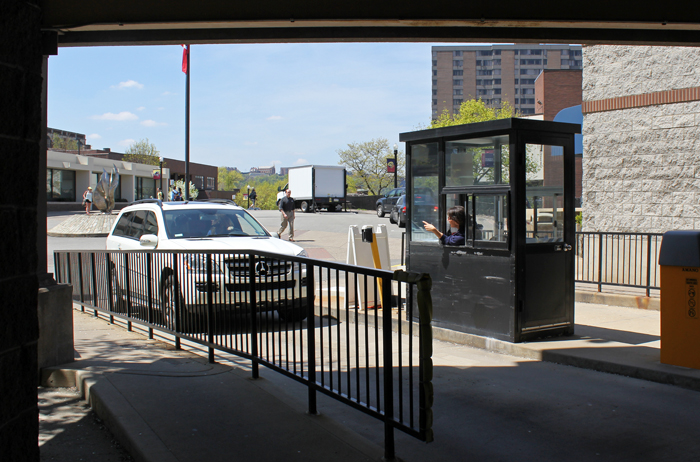
McAnulty Dean James Swindal (far left) meets with several visiting Spiritian priests.
Kaye Burnet | Staff Writer
09/21/17
Africa and Duquesne certainly don’t have a lot in common.
Rev. Benjamin Kwaghgba of the Dominican Institute in Ibadan, Nigeria, said the one big difference he sees between students at his school and students at Duquesne is access to high-end amenities, especially Wi-Fi.
“Everything is available here,” Kwaghgba said. “Forget [slow Wi-Fi]. Our students are looking to just have internet access at all.”
But for Kwaghgbha and three other Spiritan priests who visited Duquesne from African universities, the past week was about unity, not differences.
Rev. Patrick Mwania from Tangaza College in Nairobi, Kenya; Rev. Bona Ikenna Ugwu from the Spiritan International School of Theology in Attakwu-Enugu, Nigeria; Rev. Anthony Anomah from Spiritan University in Ejisu, Ghana and Kwaghgba traveled from Africa to Duquesne University last week for a series of workshops on how to help their Masters in Theology programs grow.
Duquesne’s Department of Theology, Center for African Studies and the campus Spiritan priests hosted the four representatives and coordinated workshops on assessing student learning, grant-writing, new teaching methods and curriculum development, among other topics. For the visitors, it was a chance to meet each other and share information.
“Sometimes it’s good to see that the same issues we are dealing with, they are also dealing with,” Mwania said.
Duquesne is connected to the Spiritan International School of Theology, Spiritan University, Tangaza College and the Dominican Institute through the university’s Spiritan affiliation and Center for African Studies. Spiritans are an order of Catholic priests that founded Duquesne and continue to work as missionaries in more than 50 countries, particularly in Africa.
Kwaghgba and Anomah agreed that one of the most exciting things to come out of the week was Duquesne announcing that the university would share its online library materials with the four African universities.
“We will have MultiPass usernames and access to everything online [through Gumberg Library], and also ILLiad,” said Anomah. IILiad stands for Interlibrary Loan internet accessible database, and can be used to request digital articles from libraries around the world.
However, according to Kwaghgba, his university will need to acquire grants to invest in better facilities and amenities, such as internet connectivity, to ensure students have access to these resources. Although Nigeria has the largest economy in Africa and the 8th largest amount of internet users in the world, according to the International Telecommunications Union, Kwaghgba says the university’s connectivity is not always reliable.
Kwaghgba and Anomah said that their masters in theology programs, which usually admit fewer than 20 students each year, serve a variety of students from priests and others looking to further their understanding to retired lay people who want to deepen their faith. According to Kwaghgba, the masters program at his school is almost an exact blueprint of the masters program at Duquesne.
“I expected to learn a lot when I came here,” Mwania said. “This is my first time to be here at Duquesne, and I like to get to know more about Duquesne. This has been a very rich encounter.”
Kwaghgba said he appreciated Duquesne’s global approach to education.
“Students here should be proud to be Dukes,” he said. “The world is getting smaller, and Duquesne has been wise in acknowledging this.”
The visitors hope to meet again every three years at a different one of their universities, so there is a chance someone from Duquesne will have the opportunity to travel to Africa in 2020.
“Perhaps there will be some way to involve students in the future as well,” Mwania suggested.



